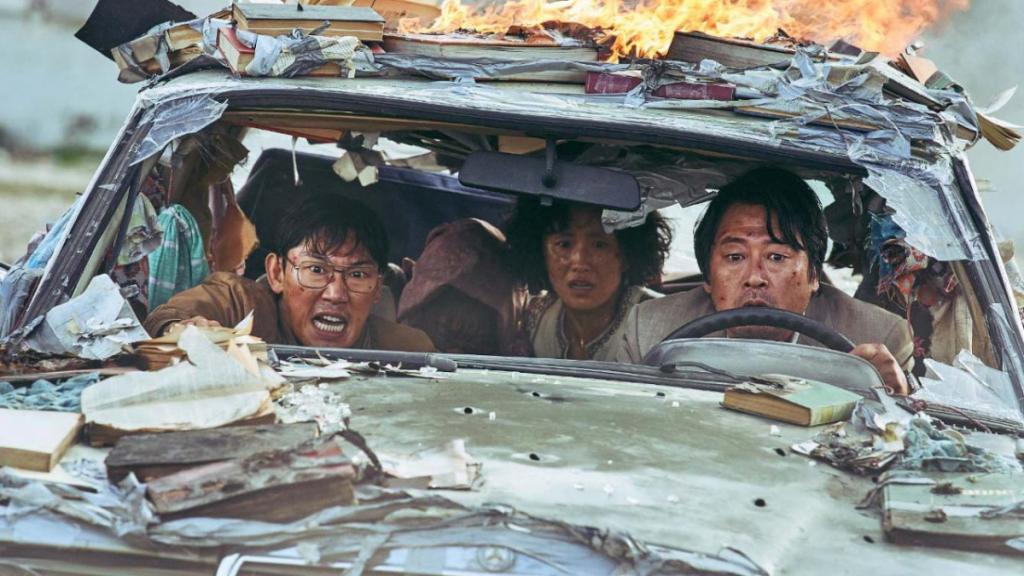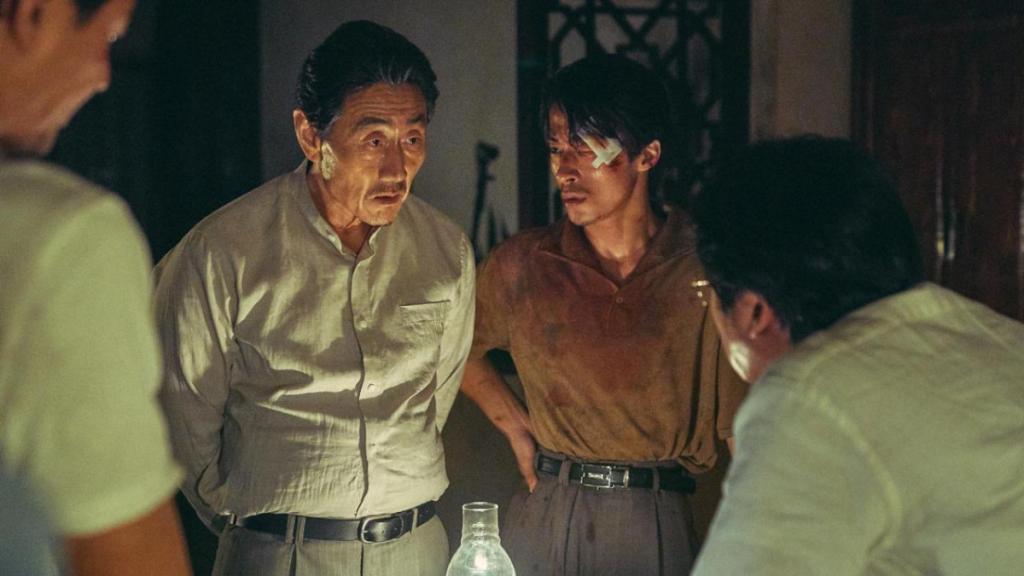
I can’t speak for North Korea, but it’s always compelling cinema to watch from Southern directors, with stories featuring parties from both sides of the DMZ. Seeing and observing the mannerisms and dispositions of both parties as they’re forced together in situations that imperil them and implore finding a common ground should be a welcome challenge for almost any filmmaker to tackle. More to the point, director Ryoo Seung-wan facing this challenge head-on is a feat I’m keen on witnessing, as big in scope and scale as many of his productions have grown, from the heydays of Die Bad, Crying Fist and Arahan, to international thriller The Berlin File and explosive period epic, The Battleship Island.
Ryoo’s escalation continues this month with Escape From Mogadishu, spotlighting a colossal moment in Somalian history as the African nation became ground zero for the two Koreas, with the South vying for membership in the U.N. as of 1987. Our story begins somewhere in 1990, where South Korean Ambassador Han Shin-sung (Kim Yun-seok) and his envoy await the arrival of Counselor Kang (Zo In-sung) to deliver a diplomatic package for their scheduled meeting with President Barre. Unfortunately, it’s not long when after Kang arrives that the Amabassdor and his envoy are robbed at gunpoint while en route, and as it stands, it’s one in seemingly several lowball infractions by the North Koreans to one-up their diplomatic influence with the local authorities over the South. The view is even more troubling for Han as his eyes are opened even more to the troubling political backdrop of the very government he’s trying to engage.
It’s when things come to a head right on the streets of the Capitol that the real drama begins. The United Somali Congress and other rebel forces have struck an uprising against Barre’s militarized government with the full force of its own arsenal, and all the Embassies are forced under lockdown and left with no water or electricity, and limited resources to sustain until the unrest is over. Both Koreas are now desperate to contact their respective nations and escape safely, though it’s when the North’s Embassy is raided of its goods that its own diplomats, Ambassador Rim Yong-soo (Heo Jun-ho) and Counselor Tae (Koo Gyo-hwan), and the small number of children and families in their care, are forced to parlay with the South for sanctuary. What ensues in the sudden makeshift microcosm of two warring countries, is a test of resolve and national identity, whilst appealing to each other for a synchronization of one common goal, and see past their differences long enough to get out of Mogadishu alive.
In the midst of all the intertwining character developments, the main characters to keep an eye on are the four actors headlining Escape From Mogadishu. Han and Rim bare the more diplomatic brunt of their dichotomy while their respective counselors, Kang and Tae, have a much more pugilist edge about themselves; both latter roles are trained men, weary of their enviroments and are able to handle situations when the going gets tough. Even moreso, its Tae who becomes fixated on the small goings-on, ultimately triggering a brief conflict that sees him and Kang going back and forth in fisticuffs in the second act.
There’s just a dash of comedy in the action aspect at the top of the film as well, during an earlier scene in which Kang feigns a martial arts form to pacify his brimming frustration, all while waiting for a taxi he initially doesn’t want to take. It’s not try-hard comedy and was suitable for the moment, which is more than I can say for other films that make the mistake of trying to be funny at the wrong times. The rest of the film sticks to its natural habitat in bringing its story from one point to the next as our characters traverse from what conflict and crisis to the next, all before ramming their way through gauntlets of gunmen in a four-car race to sanctuary in the final half hour.
Inherent in this guideline is never skewing from the horrors of an internal war in a third world country. Just short of watching cars on streets littered with corpses, the imagery is grim, dark and haunting, as well as some of the actions of the unrelenting local police, some of whom are implored to stick around and protect the South Korean Embassy against the armed rebels, and you better there’re caveats here as well. The actions of the rebels are as violent and atrocious as you would expect, that is, when they’re not in their neighborhood shanty dens playing sports with children, or dealing with certain political figures in private on the low.
The terrain covered in Escape From Mogadishu is more than sizeable when it comes to watching the North and South co-exist with each other within the small window of time they can institute truce, one that Commander Tae isn’t so fond of, much less any adumbrations or hints of defection. Between all the headlining characters here in regard, Heo’s is the most interesting, with a character in Ambassador Rim who finds himself caught between steeling his heart, and reconciling with reality. It’s a really revealing development to watch, and exemplifies at least one thing this film never fails at, like similar films: Making you wonder what the world would be like today without so many borders and bullets.
It’s been maybe fifteen years since Ryoo landed on my radar. I’ve still yet to see all his films, but he’s never been a disappointment when he’s on set (I gladly give him a pass for The City Of Violence considering the injury he suffered whilst still filming action and dialogue scenes WHILE directing, and all despite weakening the plot with a way-too-early reveal). I’d been waiting for a sequel to his hit action comedy, Veteran, and even moreso, a return to form by way of his previous exploits in martial arts action (fans of Arahan: Jangpung Daejakjeon or even Crying Fist would understand), but this point, Ryoo has long since solidified himself as a director with immense promise, and so I don’t mind that his next film is a crime piece set in the 1970s.
Fact is, when watching a Ryoo film, you know Ryoo understands his craft as well as his audience. Escape From Mogadishu is an engrossing, explosive political thriller that measures up for your viewing needs, and you don’t want to miss it when it kicks off the 20th New York Asian Film Festival on the same day of its U.S. theatrical release from Well Go USA.

